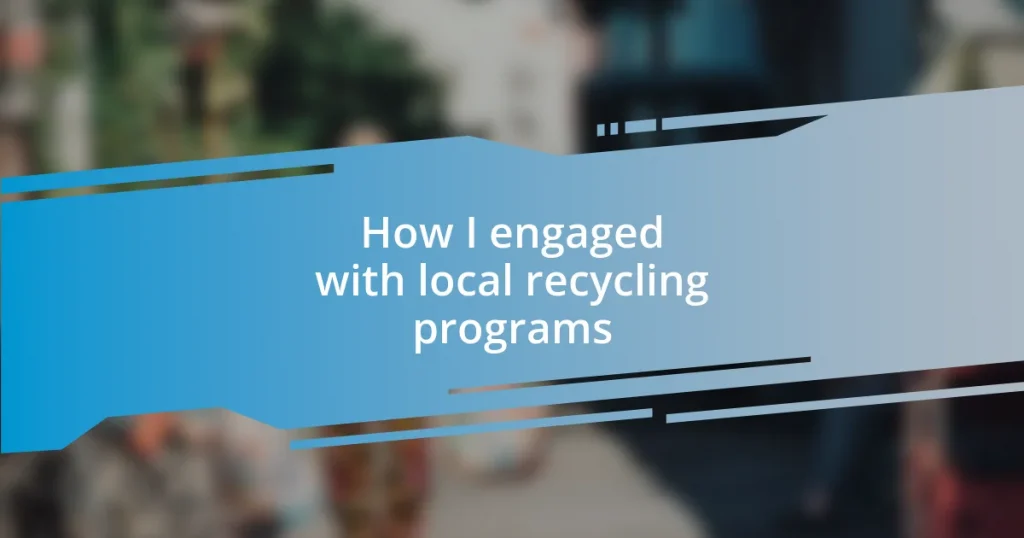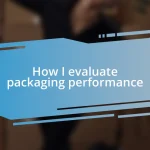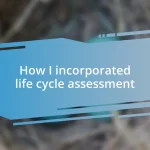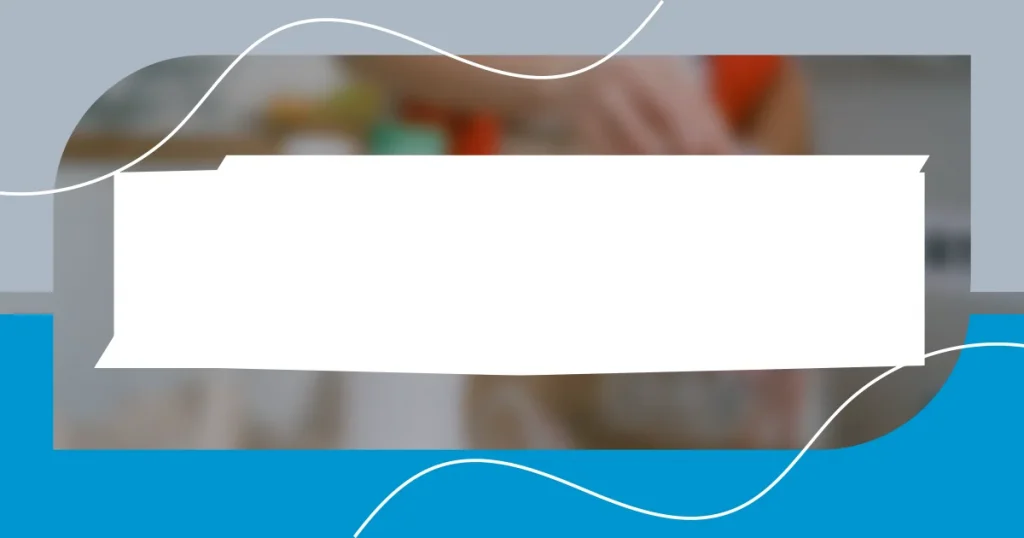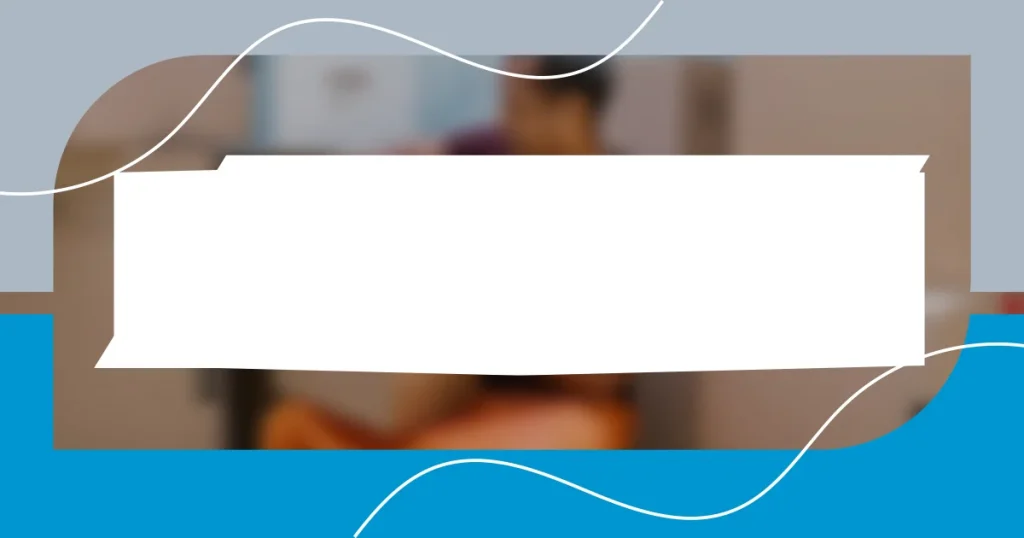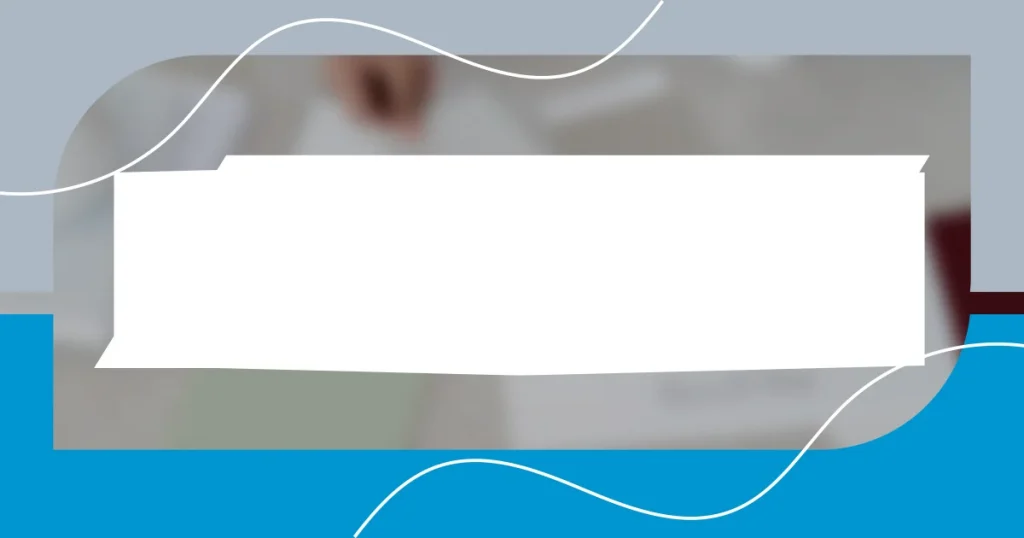Key takeaways:
- Engaging with local recycling programs fosters community connections and contributes significantly to waste reduction.
- Clear communication and education are essential to address common challenges, such as confusion over acceptable materials and participation in recycling initiatives.
- Successful local initiatives, like community competitions and school programs, highlight the power of collective action and creativity in promoting sustainability.
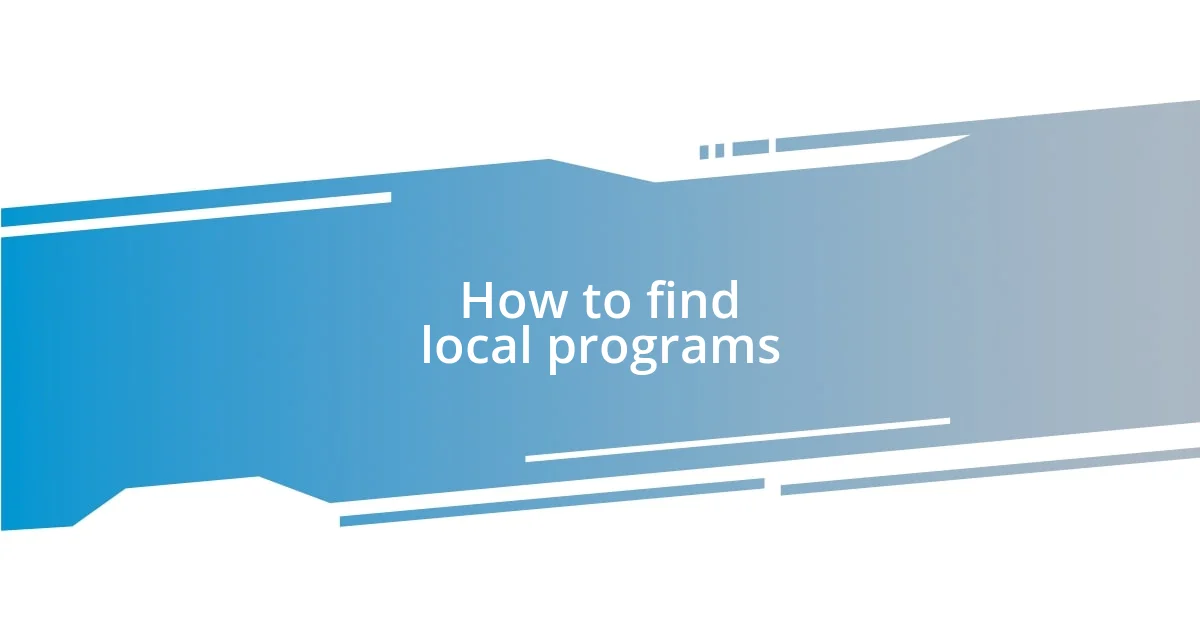
How to find local programs
Finding local recycling programs can feel overwhelming at times, but there’s a wealth of resources at your fingertips. I remember the first time I searched online; I simply typed “recycling programs near me” and was surprised to discover a local initiative that not only offered curbside pickup but also educational workshops. Have you ever thought of using your local government’s website? Many municipalities have dedicated sections that list recycling options available in your area.
Another great way to dive into community initiatives is to connect with neighbors or local community groups. I recall chatting with a neighbor who was deeply passionate about recycling; she introduced me to a weekend clean-up event that not only focused on recycling but also fostered a sense of community. It made me realize how powerful personal connections can be; sometimes, the best information comes from just having a conversation!
Additionally, social media can be a valuable tool for uncovering these programs. I often see posts and events shared by local environmental groups on platforms like Facebook and Instagram. It’s an exciting way to stay engaged—have you ever thought about following these organizations? By participating in discussions or events, not only do you learn more, but you also encourage others to join the recycling movement.
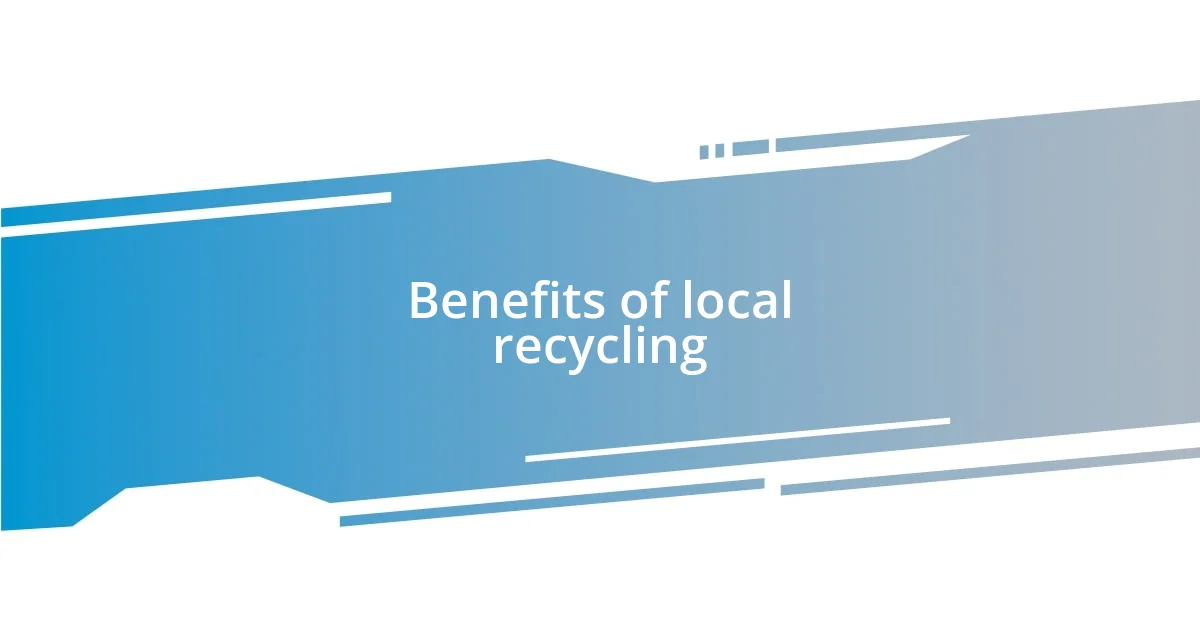
Benefits of local recycling
Engaging in local recycling programs not only helps the environment but also fosters community involvement. I still remember the pride I felt when I started participating in community clean-up days. Watching our neighborhood come together, armed with recycling bags, taught me how collective action can lead to significant positive change. It’s more than just sorting waste; it’s about forming connections and standing together for a common goal.
Recycling locally can greatly decrease the amount of waste sent to landfills. When I learned that just one person can recycle hundreds of pounds of material a year, I felt both shocked and empowered. It made me realize that my individual efforts added up over time, contributing to a larger impact. Isn’t it inspiring to think that each small action collectively makes a difference in preserving our planet?
Moreover, participating in local recycling initiatives can be economically beneficial. Many towns offer incentives, like reduced waste management fees or even rewards for active recyclers. I took advantage of a program that offered discounts at local stores for recycling participation. I found joy not only in saving money but also in supporting businesses that care about sustainability. How about you—wouldn’t you feel motivated by quick wins like that?
| Benefit | Description |
|---|---|
| Community Engagement | Fosters relationships through collaborative activities. |
| Waste Reduction | Significantly lowers landfill contributions from households. |
| Economic Incentives | Local programs may offer rewards or discounts for participation. |
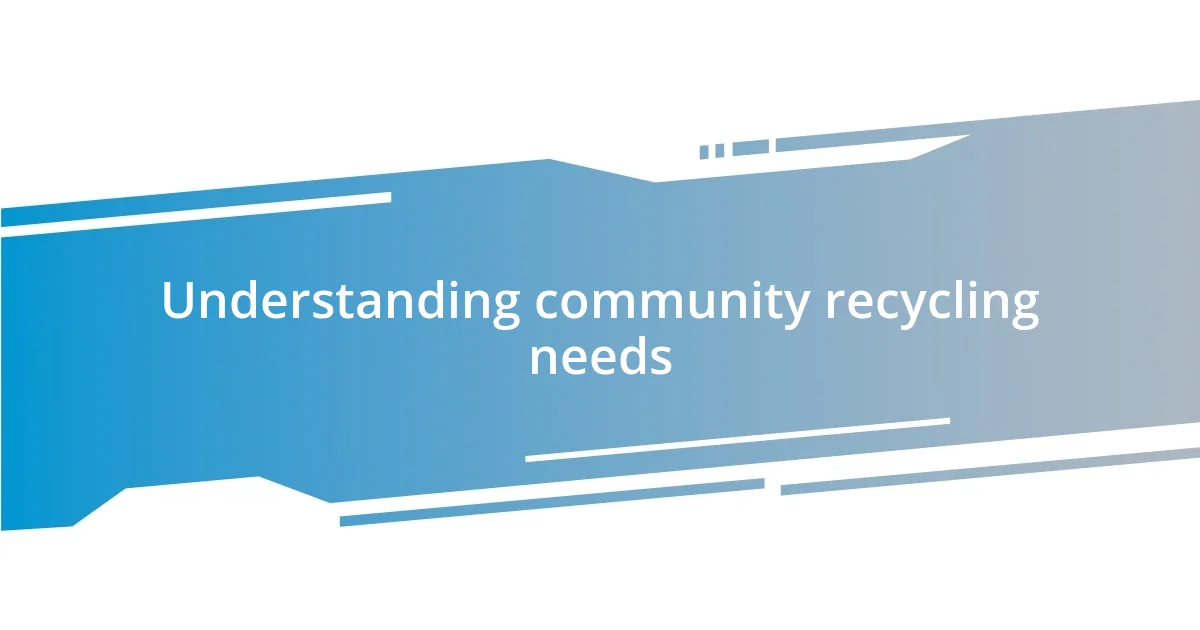
Understanding community recycling needs
Understanding community recycling needs is crucial for creating effective programs that resonate with residents. Through my experiences, I’ve learned that understanding these needs often starts with conversations. When I first joined a community group focused on environmental issues, I discovered a range of opinions about recycling—some people were frustrated with the lack of clear guidelines, while others felt unsure about what materials were accepted. This exchange sparked an idea for a workshop where we could bring everyone together for a discussion on recycling practices in our area.
Here are some key points that emerged from those conversations:
- Clarity on Guidelines: Many residents were unsure of what could and couldn’t be recycled, leading to confusion and frustration.
- Accessibility: Some community members expressed difficulty in accessing recycling drop-off locations or had concerns about the cost of participation.
- Education: A desire for more educational resources was a common theme; people wanted practical tips on reducing waste at home.
The more I engaged with community members, the more I realized how these insights could shape better recycling initiatives. I remember a woman from the workshop sharing how her family had started composting after learning about the impact of food waste. Her enthusiasm was infectious; it reminded me that addressing the needs of the community could foster creativity and innovative solutions. The process of understanding these needs is ongoing and presents an incredible opportunity for collaboration and growth within our neighborhoods.
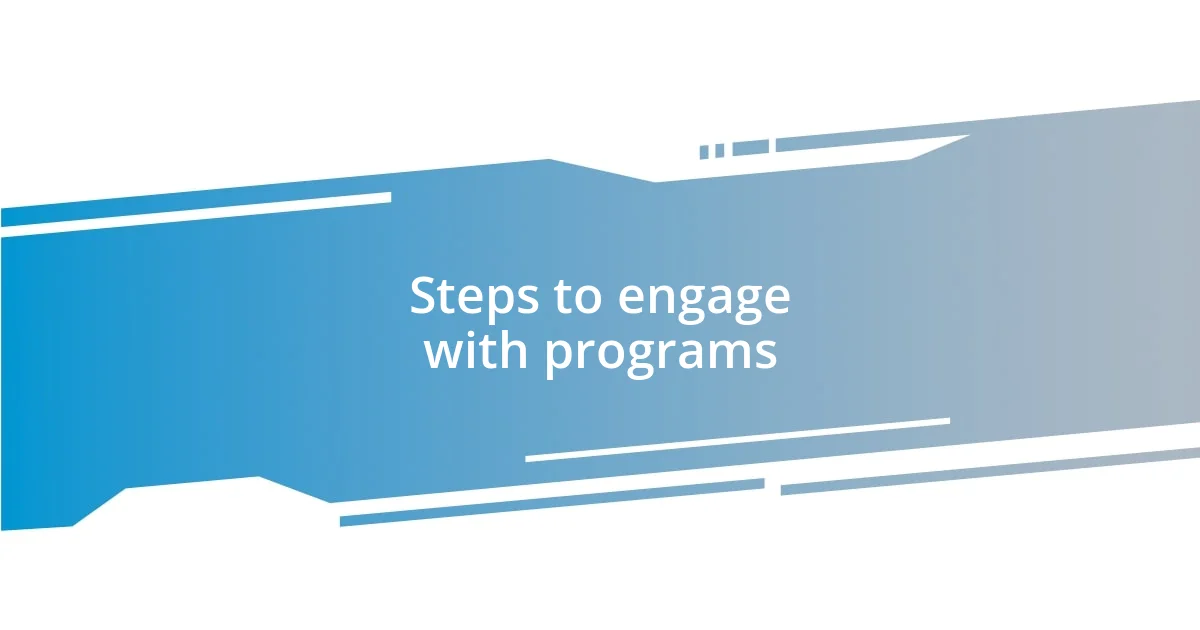
Steps to engage with programs
When I decided to engage with local recycling programs, the first step I took was to attend a community meeting. I walked in curious but a bit apprehensive, not knowing what to expect. Listening to passionate locals share their ideas made me realize that these gatherings foster a genuine sense of belonging. Have you ever found yourself in a room full of people who share your values? It’s invigorating!
Next, I found it essential to educate myself about the specific recycling guidelines in my area. Initially, I was overwhelmed by what could or couldn’t be recycled. To overcome this, I started a personal checklist on my phone, breaking down the accepted materials. This simple tool made my recycling routine more efficient. Isn’t it interesting how a little organization can lead to a deeper commitment to sustainability?
Finally, I took action by volunteering for a local recycling initiative. My first event involved sorting through items collected from a neighborhood drive. I vividly remember the camaraderie we felt while working together, laughing and sharing stories. It opened my eyes to the reality that engaging in these programs isn’t just about recycling; it’s about building relationships that inspire collective responsibility. How rewarding is it to contribute to something larger than ourselves?
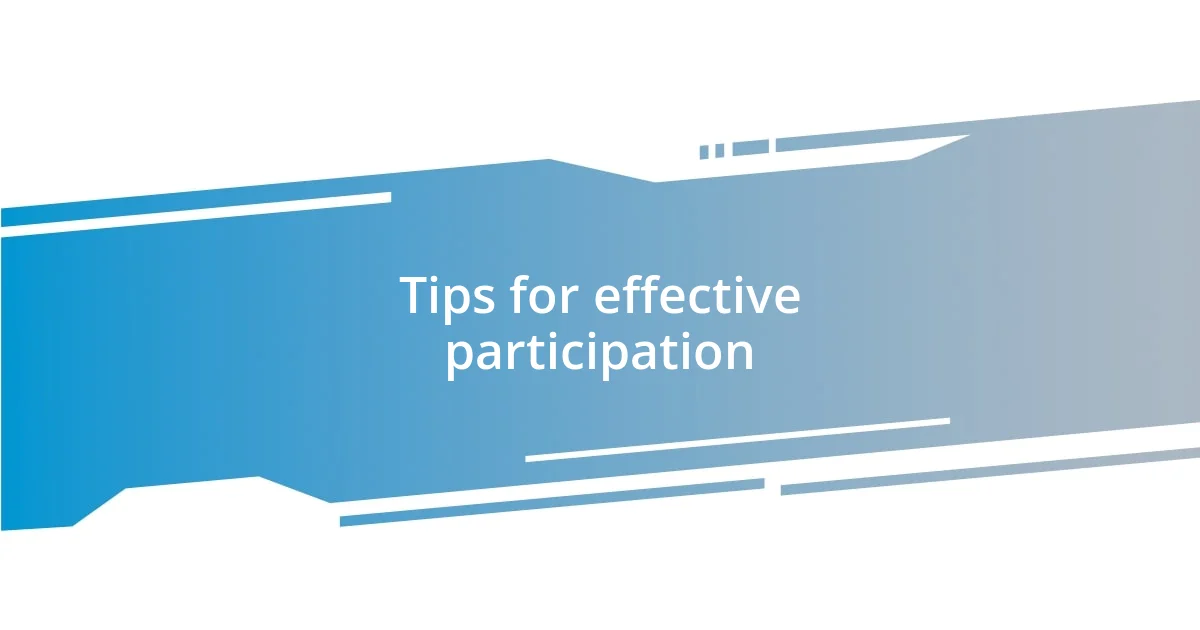
Tips for effective participation
When participating in local recycling programs, I’ve found that clarity is essential. For instance, I once had a friend who was baffled by the number of different bins for plastics. We turned it into a friendly challenge to memorize the recycling symbols. Not only did it help us become catechism for our local recycling stream, but it also made me realize how much clarity can motivate action. Can you imagine building confidence in your recycling habits knowing exactly what to toss where? It’s empowering!
Another tip that has worked wonders for me is community involvement. After volunteering to lead a local clean-up event, I noticed how it galvanized others. Seeing my neighbors dedicate a Saturday morning to clean our park was uplifting. As I watched a small child eagerly pick up litter while her parents cheered her on, I understood the ripple effect community spirit can have. Have you ever felt that spark in your soul when participating in something greater than yourself? It’s contagious!
Lastly, sharing my experiences has been a game-changer. I write about my recycling journey on social media, providing tips and just sharing what works for me. One time, I posted about reusing glass jars, which led to a fun discussion about eco-friendly DIY projects. The comments poured in, with friends sharing their own creative ideas! This collaborative exchange showed me that participation isn’t limited to just the act of recycling; it’s about cultivating a shared enthusiasm for a sustainable future. Isn’t it incredible how a simple post can inspire so many?
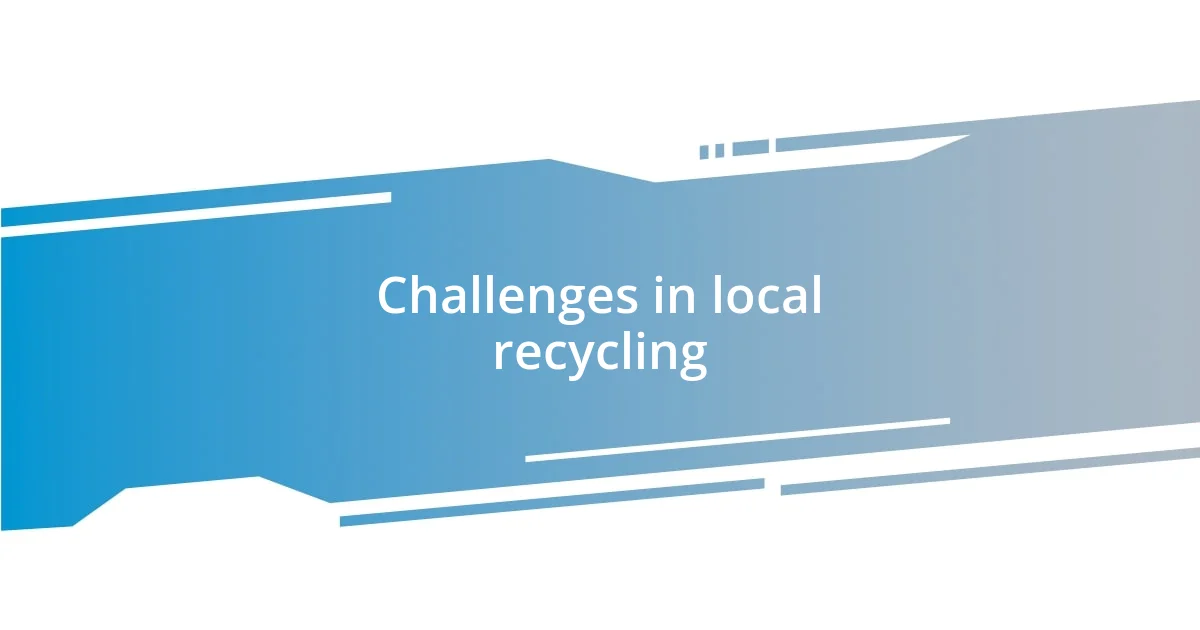
Challenges in local recycling
One significant challenge I’ve encountered with local recycling programs is the confusion surrounding acceptable materials. During my most recent neighborhood cleanup, I found several participants unsure about what belonged in the recycling bin versus the trash. It made me realize how vital clear communication is. Have you ever glanced at a recycling guide and felt your head spin? A lack of straightforward guidelines can discourage even the most enthusiastic recyclers, which is disheartening.
Another hurdle I’ve experienced is the inconsistency in recycling services. My town once changed its pickup schedule, and suddenly, my carefully sorted materials sat untouched for weeks. That frustration resonated with many in the community, leading to missed opportunities for responsible disposal. Do you ever feel like your efforts are wasted when systems are unreliable? Having a trustworthy collection process can make all the difference in sustaining engagement with local programs.
Lastly, I’ve noticed that certain recycling programs struggle with participation due to a lack of awareness. I remember organizing a small event to share information about a local recycling drive, only to be met with surprised faces when I explained what items we could actually recycle. It dawned on me that many people genuinely want to contribute but simply don’t know how. How can we expect meaningful change without widespread knowledge? This gap highlights the importance of community education to spark greater involvement in recycling efforts.
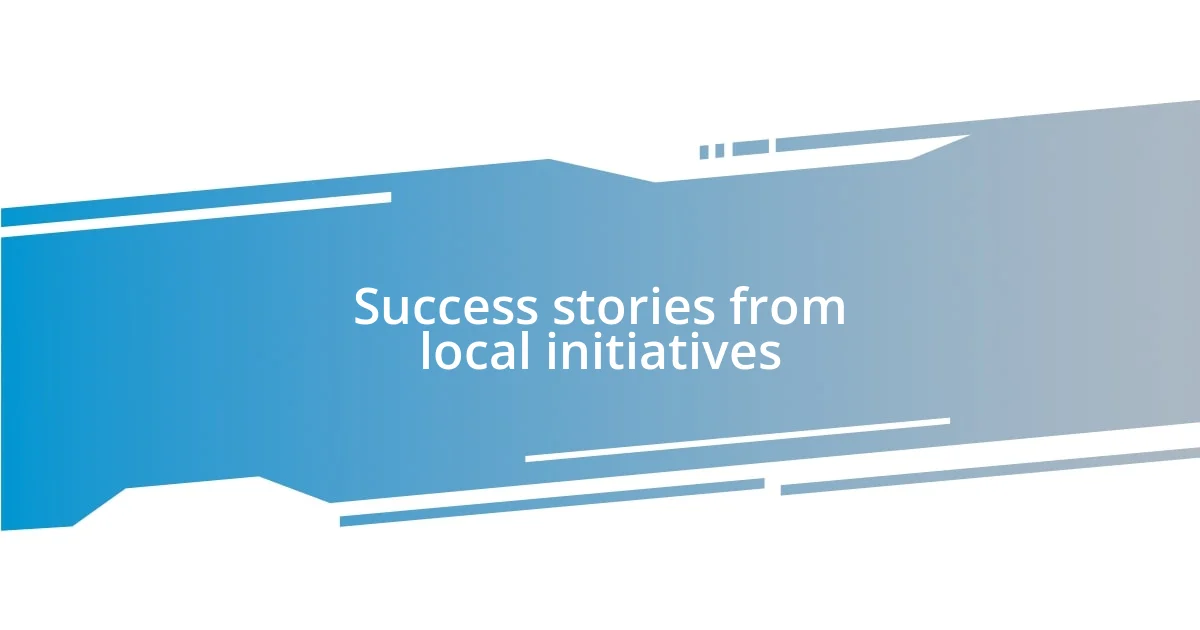
Success stories from local initiatives
One inspiring success story I recall from my local recycling initiative was a neighborhood competition to collect and repurpose plastic waste. Our community came together, with families forming teams to create art installations from collected trash. The finished projects were showcased in a local park, drawing attention to the issue of plastic pollution. Watching kids and adults alike marvel at the creativity sparked by trash was a powerful reminder of how community engagement can lead to meaningful change. Have you ever witnessed art transforming something that would otherwise be discarded? It’s quite magical!
Another noteworthy example is the collaboration between local schools and recycling programs. At my son’s school, we initiated a “Green Week” where students learned about recycling through hands-on activities. From creating compost bins to organizing a plastic-free lunch day, the kids were buzzing with enthusiasm and sharing their newfound knowledge at home. I was struck by how much they had absorbed and the infectious energy they brought back to their families. Isn’t it amazing how children can be the driving force for positive change within a community?
Lastly, a local bakery I frequent decided to implement a “bring your own container” discount for customers who opted to skip single-use packaging. The initiative not only reduced waste but fostered a sense of community responsibility among patrons. I still remember the day I saw a group of regulars chatting excitedly about their reusable containers while sipping their morning coffee—there was a palpable sense of camaraderie. It made me wonder, what if more businesses adopted similar practices? This kind of initiative can turn a simple act into a community-wide movement, promoting sustainability effortlessly.











